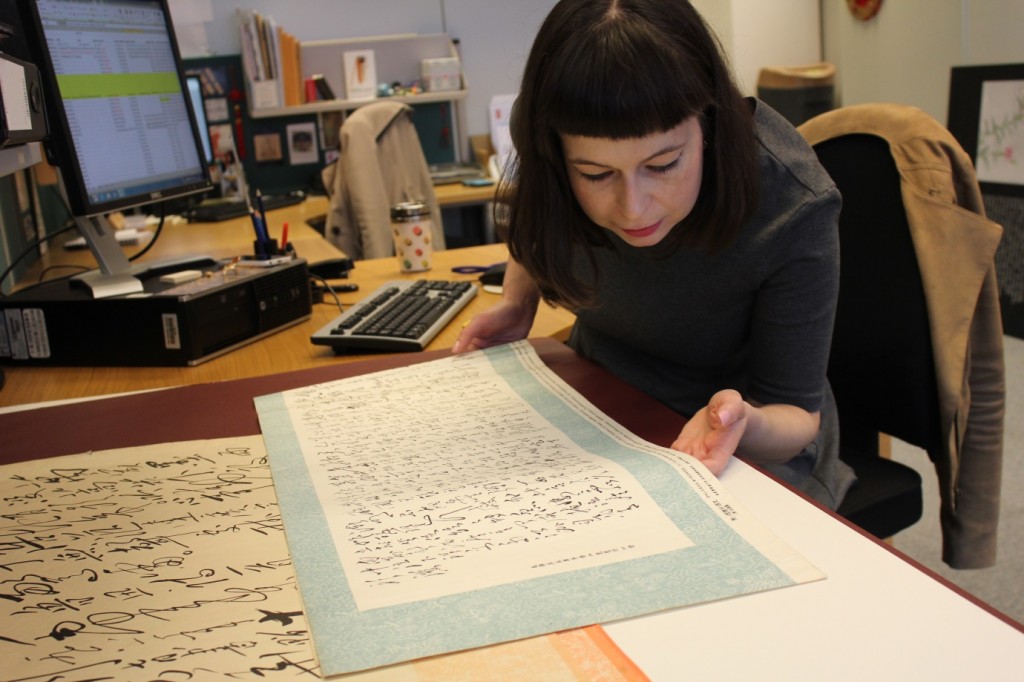Dr Amy Jane Barnes
During my three months at the British Library, I aim to catalogue the Library’s collection of Chinese propaganda posters from the 1950s to 1980s and research several academic papers, as well as investigate the possibilities for digitising and making the collection more accessible to a wider audience. The project also gives me the opportunity to develop my Chinese language skills, albeit a very specialist vocabulary relating to revolutionary ideology! The first week of the project was predominantly taken up with induction-related activities, sorting out IT access, getting to grips with collections procedures, meeting my new colleagues and investigating the collection in the British Library stores with curator Emma Goodliffe – we found lots of things we were expecting, but a few we weren’t, including an exquisite set of revolutionary nian hua (年画, “New Year’s prints”) dating from 1950. From an initial estimate of around 40 posters, we eventually located over 70. And there are many plan chest drawers still to investigate, so we may yet turn up even more! With the formalities out of the way, towards the end of the week I started to photograph, research and catalogue the collection. The posters may be organised thematically – there are examples of public information posters, posters relating to the Mao cult, nian hua ‘catalogue’ posters, so-called ‘chubby baby’ posters and a fair number of anti-Gang of Four cartoons and caricatures. But I have begun with a group of posters which depict scenes from feature films and model operas.  In order to catalogue the items, I am making a record of materials, measurements and content, as well as noting down the condition of each poster and highlighting those that might need the attention of a conservator. I have also been making rough translations of the text that appears on the posters – the types of information we need in order to determine the identity of potential copyright holders, such as publishing houses and distribution companies. My knowledge of Chinese (and set of Pleco flashcards) is expanding exponentially. Over the next few weeks I intend to continue to photograph and catalogue each item in the collection. Then begins the exciting work of researching them in depth. Dr Amy Jane Barnes
In order to catalogue the items, I am making a record of materials, measurements and content, as well as noting down the condition of each poster and highlighting those that might need the attention of a conservator. I have also been making rough translations of the text that appears on the posters – the types of information we need in order to determine the identity of potential copyright holders, such as publishing houses and distribution companies. My knowledge of Chinese (and set of Pleco flashcards) is expanding exponentially. Over the next few weeks I intend to continue to photograph and catalogue each item in the collection. Then begins the exciting work of researching them in depth. Dr Amy Jane Barnes
